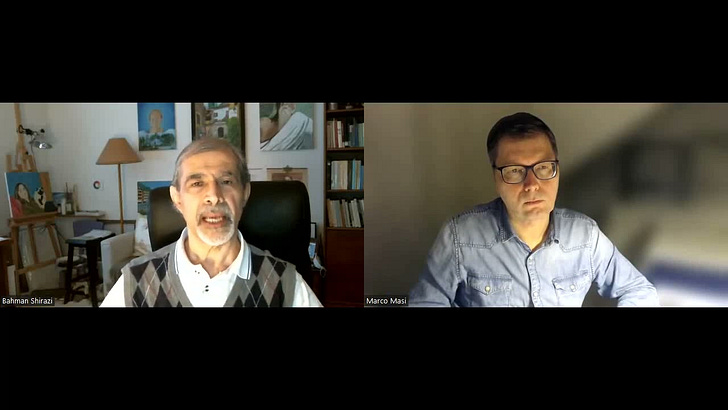I had an interesting conversation on Integral Psychology with Bahman Shirazi, a former professor at the California Institute for Integral Studies (CIIS). A conversation that fits well into my previous post where I examined the limitations of a simplistic mind-body dualism that is, more or less implicitly, adopted in Western culture. The soul-factor and a multi-modal understanding of the human being is missing. Integral psychology tries to remedy this deficiency by seeing our psychological dimension in its integrality. There isn’t just a body and a mind, we are a bit more complex spiritual creatures where mind and matter are only two of the many levels of our inner existence.
Already the starting point differs from a materialistic perspective: Consciousness is fundamental, not an epiphenomenon of matter. Then, an evolutionary perspective is essential to the understanding of who we are. There is not only a material Darwinian evolution but also an inner spiritual evolution as well. In cosmogenesis, the evolutionary process was preceded by an involution of the spirit in matter. An evolutionary soul exists that descended into the physical plane, what Sri Aurobindo called the ‘psychic being’, and that guides us in our lives, behind a veil.
We discussed several other aspects, such as the distinction between mind and consciousness, the assumptions of Western science, the planes of consciousness and parts of being, with an emphasis on the vital emotional, the unconscious, the supra-conscious, the ego with its healthy development and, especially, a psychology that connects with spirituality—that is, takes the evolutionary soul-perspective. In a post-material society, psychology must grow towards wholeness, integration of personality, and consciousness evolution.



